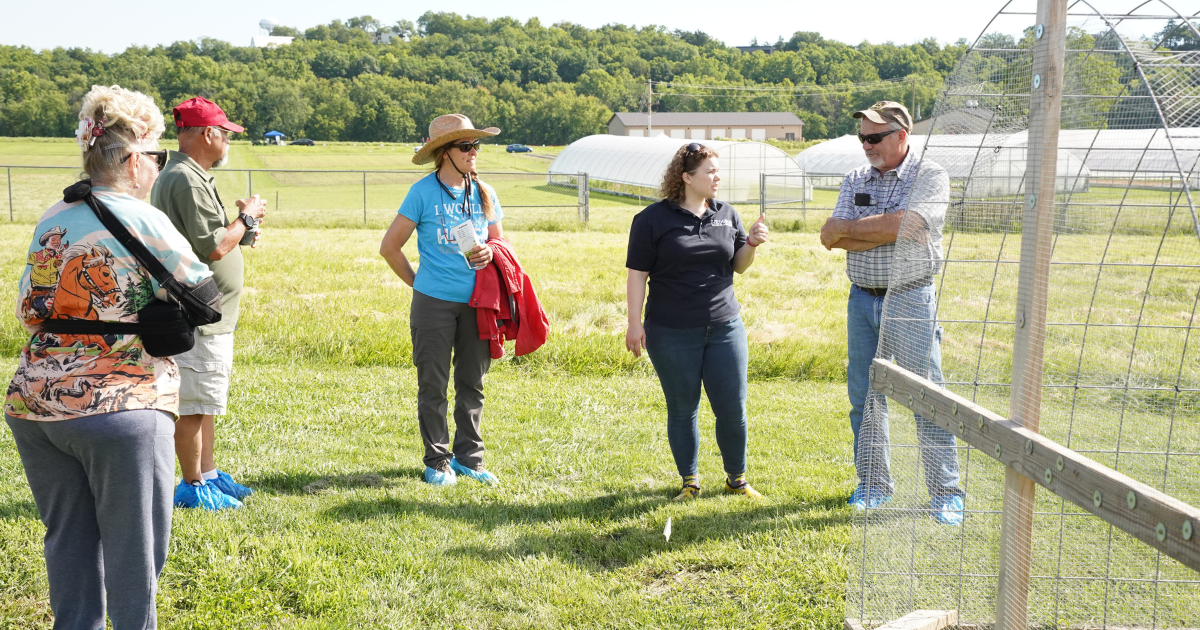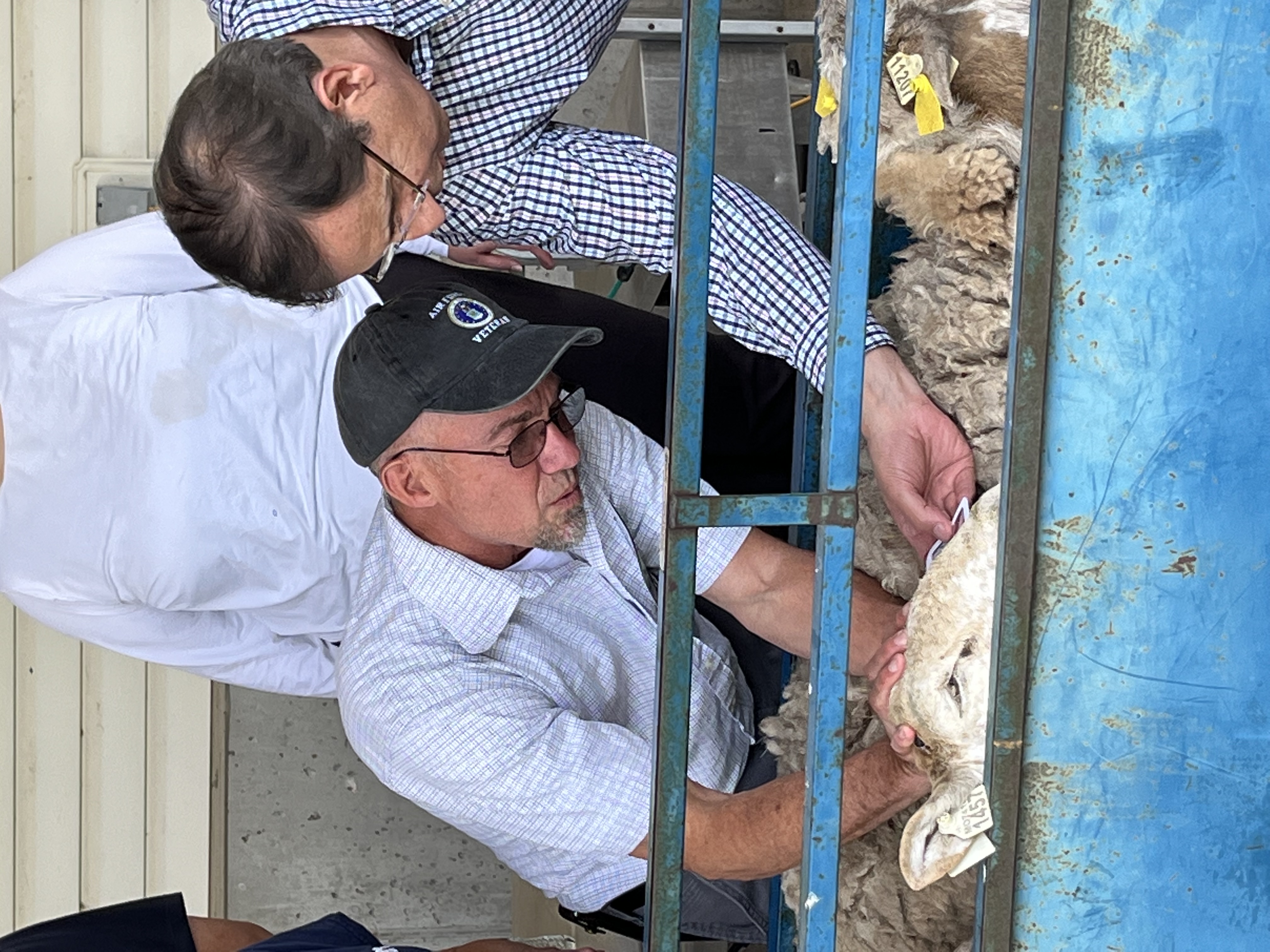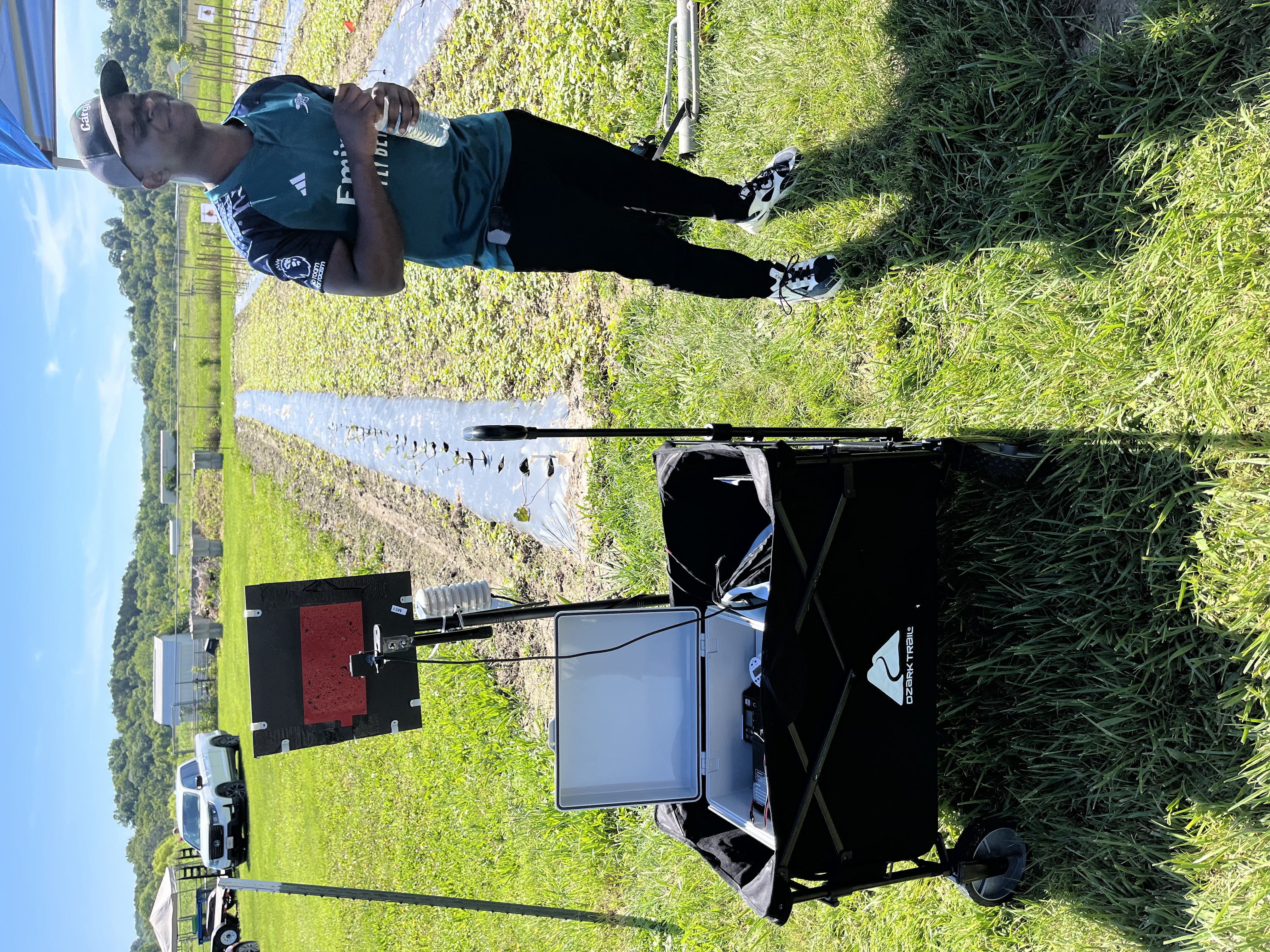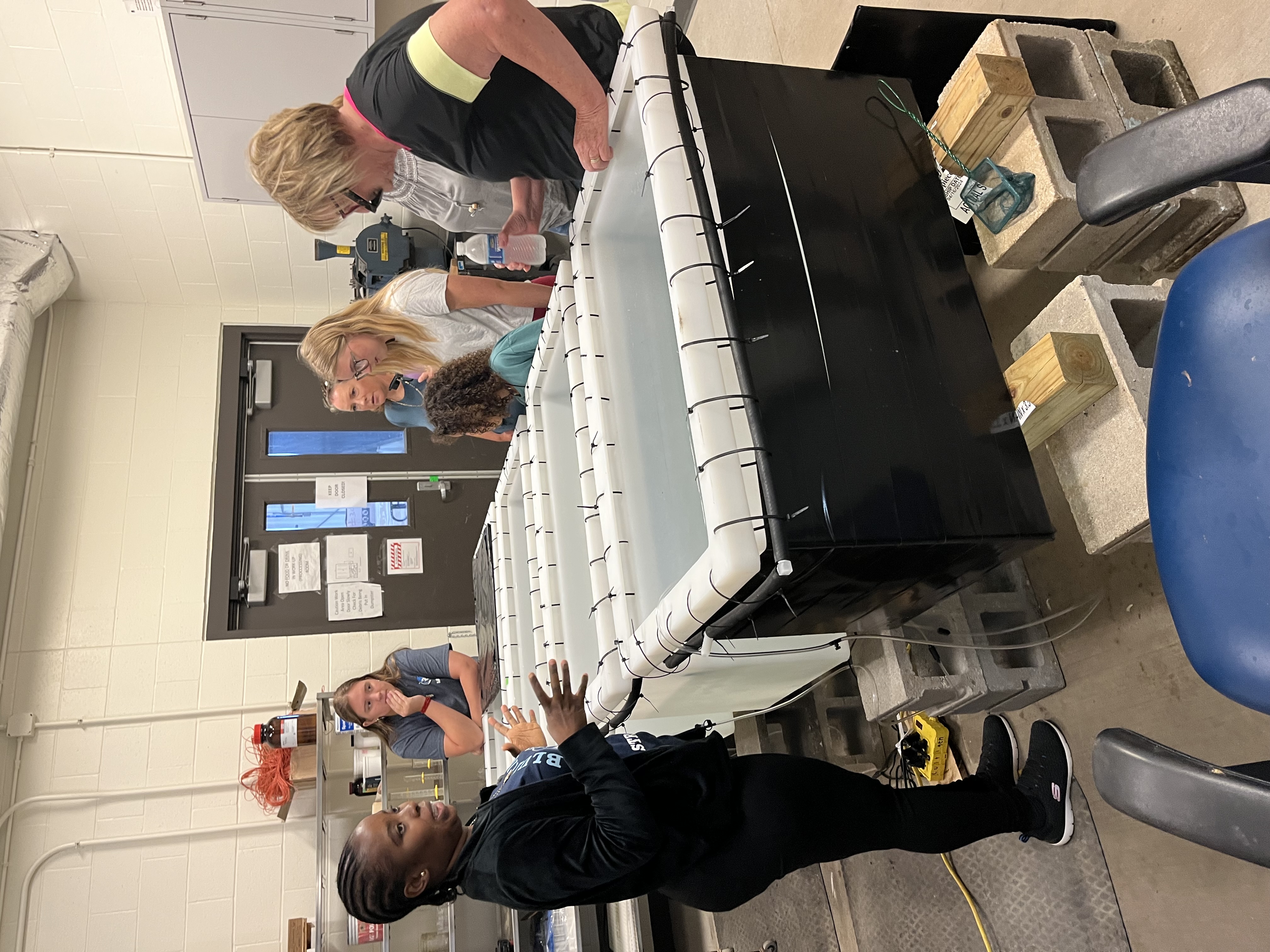LU’s Carver Farm Field Day Enhances Agricultural Outreach
Office of Communications and Marketing
Young Hall
820 Chestnut Street
Jefferson City, MO 65101
 Attendees, Lester and Pam Mason, speak with Poultry Extension State Specialist Tatijana Fisher, Ph.D., about chicken keeping, proper nutrition and management at the recent Carver Farm Field Day.
Attendees, Lester and Pam Mason, speak with Poultry Extension State Specialist Tatijana Fisher, Ph.D., about chicken keeping, proper nutrition and management at the recent Carver Farm Field Day.
On Tuesday, June 10, Lincoln University (LU) hosted the second annual Carver Farm Field Day, spotlighting its latest advancements in modern agriculture, food production and sustainability. Visitors toured the George Washington Carver Farm, one of LU's three research farms, to learn about ongoing research and extension projects reshaping the agricultural landscape.
Douglas LaVergne, Ph.D., dean of the College of Agriculture, Environmental and Human Sciences (LUCAEHS), welcomed attendees and encouraged visitors to utilize the resources LU offers to enhance their own operations. "Our mission as a land grant institution is to serve the people of the state," LaVergne said. "The research and outreach efforts we do are in response to the issues that matter to the people we serve. Today offers a glimpse into the innovative work happening here."
 Assistant Professor and Small Ruminant Extension State Specialist & Research Homero Salinas, Ph.D., helps attendees assess sheep health using the FAMACHA method.
Assistant Professor and Small Ruminant Extension State Specialist & Research Homero Salinas, Ph.D., helps attendees assess sheep health using the FAMACHA method.
Drawing over 105 participants, including legislators, agriculture producers and community members, the event provided a comprehensive exploration of the 150-acre farm. Visitors were transported by trolley to various research sites, where experts shared insights on topics such as greenhouse production, poultry farming, quinoa cultivation, industrial hemp, aquaculture, native plants, plant pathology, livestock grazing, small ruminants, hydroponics and the Innovative Small Farmers' Outreach Program's Jessup Wagon.
Tatijana Fisher, Ph.D., poultry extension specialist, shared her expertise on small-scale poultry farming, focusing on chicken keeping, proper nutrition and management. Visitors got a firsthand look at hoop houses containing 12-20 hens each and received tips on constructing their own.
 AI-powered smart insect monitoring system Waana Kaluwasha, Ph.D., assistant professor of plant pathology, is developing to manage invasive pests in Missouri in collaboration with the University of Missouri and Missouri State University.
AI-powered smart insect monitoring system Waana Kaluwasha, Ph.D., assistant professor of plant pathology, is developing to manage invasive pests in Missouri in collaboration with the University of Missouri and Missouri State University.
Assistant Professor of Plant Pathology Waana Kaluwasha, Ph.D., and her team featured their new project on developing a smart insect monitoring system to manage invasive pests in Missouri, particularly the spotted wing drosophila. In collaboration with the University of Missouri and Missouri State University, they aim to develop AI technology to prevent pest infestations and improve crop yields.
The Specialty Crops Program/Native Plants team, led by State Extension Specialist Nadia Naverrete-Tindall, Ph.D., showcased a vibrant display of native plants, emphasizing their ecological and health benefits. Increased quinoa planting plots reflected the expanded research Associate Professor of Crop Science Dr. Safiullah Pathan and his team are conducting on this resilient climate-smart crop. They will dive deeper into the multiple benefits of this rising superfood as a consumer and producer at Quinoa Field Day on July 16.
Assistant Professor of Aquaculture Dallas Flickinger, Ph.D., introduced visitors to freshwater prawns and various fish species in the breeding program. State Aquaculture Specialist Jim Wetzel, Ph.D., provided crucial insights into pond design, water supply, drainage and oxygen levels essential for aquaculture success.
 Moureen Matuha, PhD., assistant professor of aquaculture, explains the difference between shrimp and prawns to visitors.
Moureen Matuha, PhD., assistant professor of aquaculture, explains the difference between shrimp and prawns to visitors.
Among the attendees were Lester and Pam Mason, retirees-turned small-scale farmers from central Illinois. They acknowledged the field day's practical insights, having previously benefited from LU's small ruminants workshop. "It's better to learn from experts than to make mistakes along the way," Lester Mason said. The Masons have successfully implemented rotational grazing, improving soil health and reducing feed costs.
Presentations covered a wide array of topics, including parasite control in sheep and goats, quinoa cultivation, native edibles and their pollinators, industrial hemp for fiber and fuel, soilborne pathogen management and aquaculture in recirculating systems.
Farm Superintendent Chris Boeckmann emphasized LU's commitment to supporting farmers, inviting visitors to seek assistance with their agricultural challenges anytime.
Lincoln University Cooperative Extension and Research (LUCER) is dedicated to improving the quality of life for Missourians with limited resources. Through research-based education, LUCER programs empower small farm owners with skills in sustainability, leadership and agricultural innovation, ensuring they can thrive in a dynamic economy and meet their customers' evolving needs.
